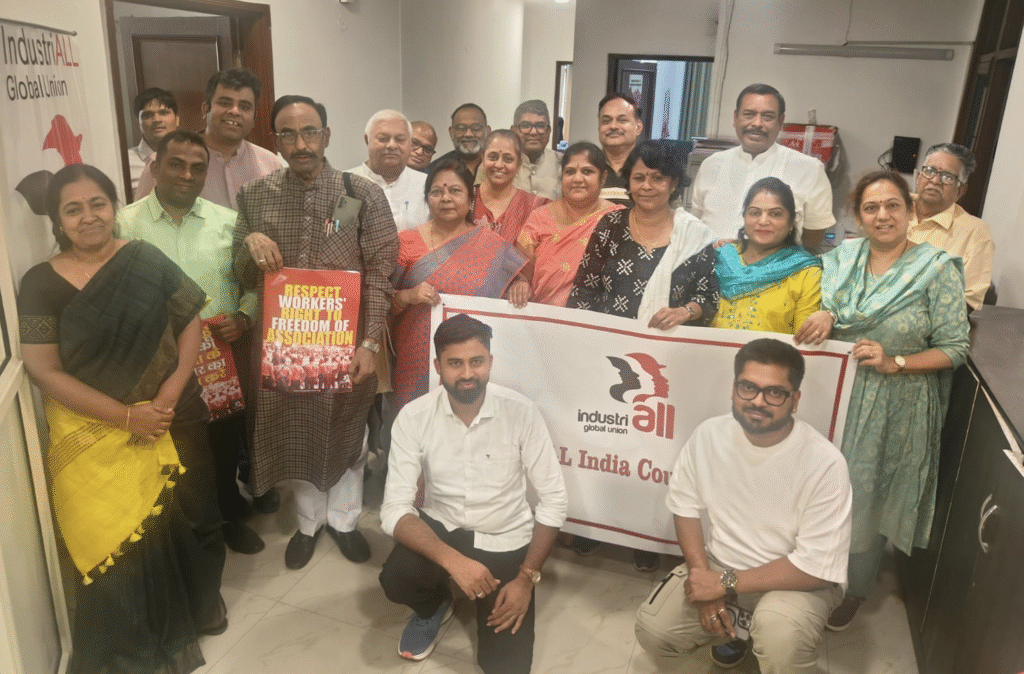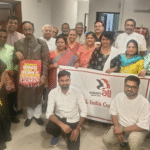Read this article in:
English
5 May, 2025Last week, on 28 April, at IndustriALL’s India Council meeting, affiliated unions discussed challenges facing the trade union movement in the country, including the continued rise of precarious employment, the impending implementation of anti-worker labour laws and the exclusion of unions from national-level discussions on the energy transition.
Precarious work was at the forefront of the discussion. Union leaders from various manufacturing sectors raised concerns regarding the urgent need to unionize precarious workers to protect their rights and guarantee improved working conditions and wages.
Occupational health and safety also remains a big challenge for precarious workers. According to union leaders, the new labour laws will further exacerbate the deteriorating state of workplace safety in Indian factories. The joint platform of central trade unions in India and sectoral federations have called for a country-wide strike on 20 May 20 demand that the implementation of new labour laws be halted.
IndustriALL assistant general secretary Kemal Özkan participated online and said:
“We are witnessing an unprecedented attack on workers’ rights all over the world and in these difficult times we must stand together and keep up the good fight. IndustriALL stands in complete support and solidarity with its Indian affiliates in their fight against precarious employment.”
Kemal Özkan informed participants about IndustriALL’s upcoming Congress in Sydney, Australia, under the slogan of Organizing for a just future.
Significant achievements and ongoing efforts of IndustriALL in the region were shared by South Asia regional secretary Ashutosh Bhattacharya. He emphasized the need and significance of Just Transition work in the region, which had been extensively covered in a half-day Just Transition session with the affiliates the day before.
During the session, union leaders highlighted the various challenges workers face today amid the ongoing transition in the manufacturing landscape. There was in-depth discussion on how the world of work is impacted by climate change and technological advancements, including heat stress, climate change induced migration, adoption of advanced robotics on shopfloor, to name a few. Trade unionists agreed to move forward by jointly submitting a letter to the Indian government detailing their demands for the country's Just Transition.
“We commend our Indian affiliates for developing national pathways and making strong progress in organizing precarious workers across the country to build a united and powerful voice for working people, advance a transformative agenda, and uphold the commitment that no worker is left behind in the transition,”
said Ashutosh Bhattacharya.
Youth and women representatives present during the meeting also put forth their demands to the council. One of the demands that young union leaders have been advocating for includes reskilling and upskilling training programmes for young workers.
India’s women’s committee, which met on 27 April, has identified three priority areas to work on which include gender pay gap, impact of technological changes on women workers and OSH issues related to menstruation, maternity and menopause.







